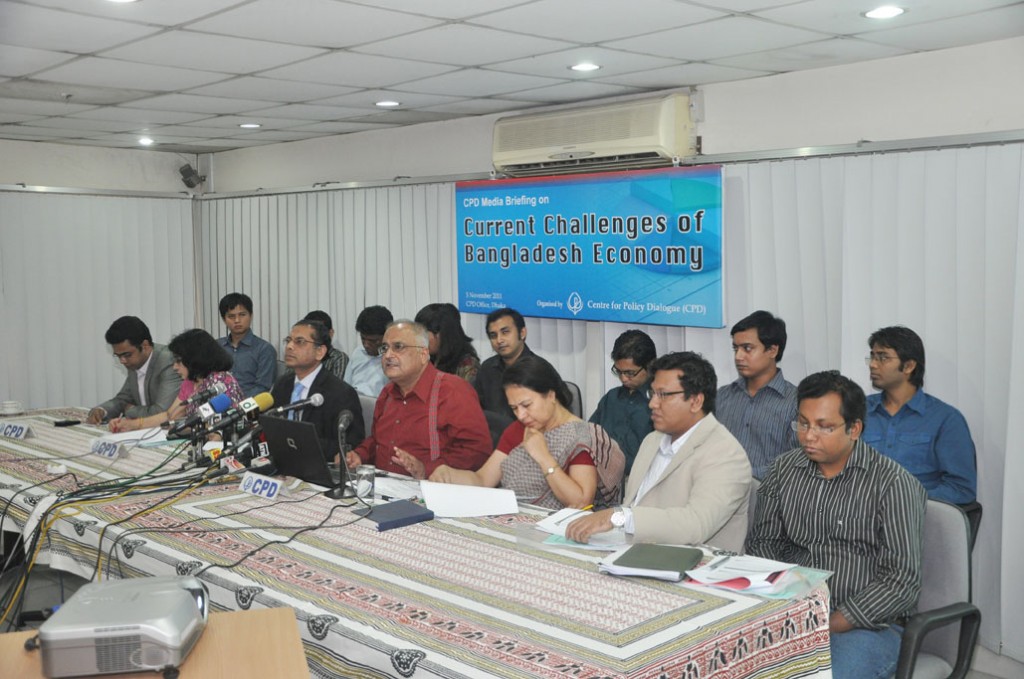The government should undertake immediate action plans to manage the ongoing economic concerns, which may otherwise aggravate the already deteriorating global and domestic situation. This suggestion was made at a press briefing held on 3 November 2011 at the CPD office on Current Challenges of Bangladesh Economy. Dr Debapriya Bhattacharya, Distinguished Fellow, CPD presented a report to the media titled Analytical Review of Bangladesh Macroeconomic Performance in Fiscal Year 2011-12 (First Reading) prepared by the Independent Review of Bangladesh’s Development (IRBD) Team of CPD.
The report identified three major achievements during the last fiscal year such as remarkable growth in export, impressive growth rate in revenue earning and turnaround in manpower export.
He noted that in spite of these positive changes, concerns such as adverse spillovers from global economic crisis, deepening stresses in public finance management, unabated price inflation and increasing pressure on the balance of payment were felt in the economy. As a result the projected 7.0 per cent growth rate would be tough to attain during the fiscal year, he hinted. Though the South Asian economy as a whole was projected to grow at 7.2 per cent in 2012, it was mainly due to the growth of Indian economy. The report also said, due to the above mentioned weakened macroeconomic fundamentals, it would be difficult for Bangladesh to come up with response mechanisms as it did in 2008.
Dr Bhattacharya mentioned that as a strategy to combat food price hike, government had to resort to food import. This led to significant rise in subsidy requirement. Side by side fuel subsidy requirement also emerged as a critical issue due to growing demand for petroleum products which has arisen to service the quick rental and rental power plants. Dr Bhattacharya said, “Subsidy, however, is not a sustainable solution”. He suggested to adjust fuel and power prices in a phased manner and advised the government to hike the price of fuel to make at per with India. But to mitigate discontent among the poor and the farmers, provision should be made to provide them fuels at a subsidised rate.
Regarding ADP implementation, he informed that 70.6 per cent of ADP of FY2010-11 had to be financed from local sources and this has led to heavy government borrowing from the banking system, putting pressure on credit availability for the private sector. In this connection, Dr Bhattacharya suggested better utilisation of foreign aid, containment of inflation and bank borrowing, and efficient public spending in order to deal with the growing risks evident in the economy since the second half of the previous fiscal year.



